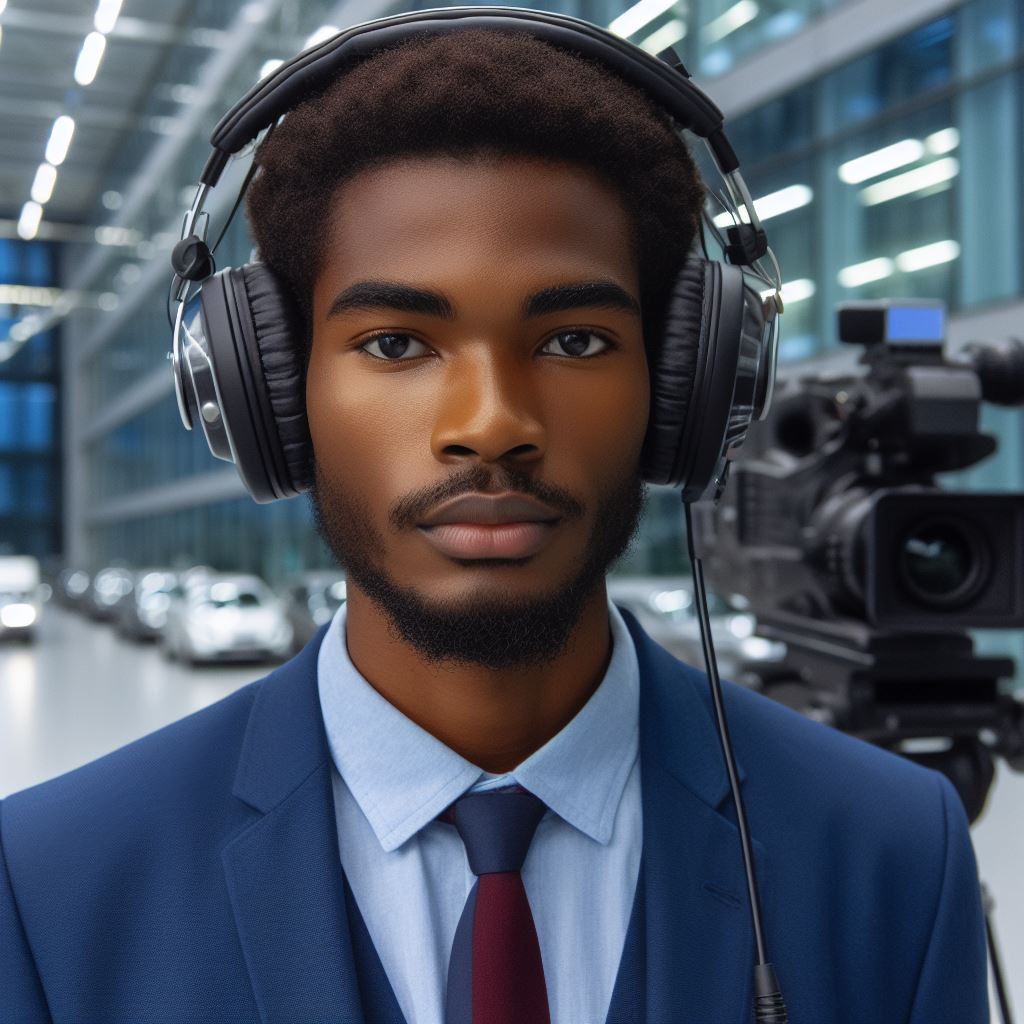Introduction
Nigeria’s media sector has experienced remarkable growth and vibrancy, reflecting the nation’s dynamic nature.
Professional bodies play a crucial role in maintaining standards and ethics within this sector.
This blog post aims to explore the key professional bodies in Nigeria’s media sector and their roles.
A. Nigeria’s Media Sector
- Rapid growth and vibrancy.
- Diverse range of media outlets, including print, broadcast, and digital media.
- Significant impact on public opinion and societal development.
B. Importance of Professional Bodies
- Ensure adherence to ethical standards and professionalism.
- Provide continuous training and development opportunities.
- Advocate for the rights and welfare of media practitioners.
C. Objective
- Identify the major professional bodies in Nigeria’s media sector.
- Examine their functions and impact on the industry.
- Highlight the benefits of membership for media professionals.
Basically, professional bodies in Nigeria’s media sector play a pivotal role in maintaining standards and ethics, ensuring the sector’s growth and credibility.
Key Professional Bodies in Nigeria’s Media Sector
A. Nigerian Union of Journalists (NUJ)
- History and formation: Founded in 1955, NUJ is the umbrella organization for journalists in Nigeria.
- Objectives and services to members: NUJ aims to protect journalists’ welfare, promote ethical standards, and ensure press freedom.
- Membership criteria and process: To join NUJ, one must be a practicing journalist and adhere to its code of conduct.
B. Nigerian Guild of Editors (NGE)
- Overview and significance in the media landscape: NGE, established in 1962, represents editors across various media platforms.
- Core objectives and how it supports editors: NGE focuses on enhancing editorial standards, advocating for editors’ welfare, and fostering professional growth.
- Events and programs for professional development: NGE organizes workshops, seminars, and conferences to enhance editors’ skills and knowledge.
C. Broadcasting Organizations of Nigeria (BON)
- The role of BON in broadcasting standards: BON ensures adherence to broadcasting standards, ethics, and regulations.
- Membership eligibility and benefits: Broadcasting organizations in Nigeria can become members of BON, benefiting from its regulatory guidance.
- BON’s impact on policy and regulation: BON collaborates with regulatory bodies to influence broadcasting policies and regulations.
D. Nigerian Press Council (NPC)
- Establishment and regulatory framework: NPC was established by the Nigerian Press Council Act of 1992 to regulate the conduct of the press.
- Functions in maintaining ethics and professionalism: NPC ensures journalists adhere to professional ethics and maintain high standards of journalism.
- Mechanisms for complaint and redress: NPC provides a platform for addressing complaints against the press, promoting accountability and transparency.
To sum it up, these professional bodies serve as pillars in Nigeria’s media ecosystem, championing professionalism, ethical conduct, and development.
Their collective efforts contribute to a vibrant and responsible media landscape, vital for democracy and societal progress.
Read: Microsoft Nigeria Careers: How to Get Started
Roles and Impacts of these Bodies
A. Standard setting and enforcement in journalism and broadcasting
Professional bodies in Nigeria’s media sector establish and uphold standards for journalism and broadcasting.
They ensure adherence to ethical guidelines and practices.
These bodies play a pivotal role in maintaining credibility and trust within the industry.
They set benchmarks for quality reporting and programming.
Through proactive enforcement measures, they mitigate against unethical conduct and misinformation.
This fosters accountability and integrity in media content.
B. Professional development and training initiatives
Professional bodies facilitate ongoing development and training for media practitioners.
They offer workshops, seminars, and certification programs.
These initiatives aim to enhance skills, foster innovation, and keep professionals abreast of industry trends.
They empower journalists and broadcasters to excel in their roles.
Continuous learning opportunities contribute to the growth and dynamism of the media landscape.
They equip practitioners with the tools needed to navigate evolving challenges.
C. Advocacy for freedom of the press and expression
Professional bodies advocate tirelessly for freedom of the press and expression.
They defend the rights of journalists and media organizations.
By lobbying policymakers and engaging with relevant stakeholders, they champion press freedom.
They oppose censorship and combat attempts to suppress free speech.
Their advocacy efforts are crucial in safeguarding democratic principles and fostering an informed society.
They uphold the fundamental role of the media in holding power to account.
D. Mediation and conflict resolution within the media sphere
In times of conflict or disputes, professional bodies serve as mediators within the media sphere.
They provide avenues for resolution and reconciliation.
Through dialogue and negotiation, they strive to address grievances and maintain harmony.
This helps prevent escalation and preserves professional relationships.
Their mediation efforts contribute to a healthier media environment, conducive to collaboration and mutual respect.
They promote constructive dialogue and uphold the collective interests of the industry.
In fact, professional bodies in Nigeria’s media sector play multifaceted roles with significant impacts.
From setting standards to advocating for press freedom, their contributions are indispensable in shaping a vibrant and responsible media landscape.
Read: MyJobMag Nigeria: Find Your Next Job Here

Challenges Faced by Professional Bodies in the Media Sector
A. Political interference and threats to press freedom
Professional bodies in Nigeria’s media sector face numerous challenges that impact their ability to fulfill their mandate and support the industry.
One major challenge is political interference and threats to press freedom, which can hinder the organizations’ independence and ability to advocate for media professionals.
B. Digital transformation and adaptation issues
Furthermore, the digital transformation and adaptation issues present another challenge for professional bodies.
With the rapidly changing media landscape, organizations must be able to navigate new technologies and platforms to remain relevant and effective in their advocacy efforts.
C. Financial sustainability and membership engagement
Financial sustainability is also a significant challenge for professional bodies in the media sector.
This issue often leads to a lack of resources and limited capacity to engage with members and stakeholders effectively.
Without adequate funding, organizations may struggle to provide the necessary support and services to their members.
Moreover, membership engagement is crucial for professional bodies to effectively represent and advocate for media professionals.
However, maintaining members’ interest and participation can be challenging, especially in a fast-paced and constantly evolving industry.
In essence, professional bodies in Nigeria’s media sector face various challenges, including political interference, digital transformation, financial sustainability, and membership engagement.
Overcoming these obstacles requires a concerted effort from all stakeholders to support and strengthen these organizations.
Read: 2024 Job Openings in Nigeria: Latest Listings
The Future of Professional Bodies in Nigeria’s Media Landscape
As the media landscape in Nigeria continues to evolve, professional bodies have a crucial role to play in shaping the future of the industry.
A. Opportunities presented by digital media and global networking
- Embracing digital platforms for communication and content distribution
- Utilizing social media for engagement and interaction with audiences
- Participating in global conferences and events to stay updated on industry trends
- Collaborating with international media organizations for knowledge sharing and skills development
B. Potential collaborations with international media organizations
- Forming partnerships for training programs and workshops
- Exchanging best practices and innovative ideas with global media professionals
- Co-producing content with international media outlets to reach wider audiences
- Participating in joint research projects to explore new opportunities in the media sector
C. Strategies for enhancing the relevance and impact of professional bodies
- Engaging with government agencies to advocate for policies that support the media industry
- Offering professional development opportunities for members to enhance their skills and expertise
- Organizing industry events and conferences to facilitate networking and knowledge-sharing
- Creating mentorship programs to support the growth and development of young professionals in the media sector
By capitalizing on the opportunities presented by digital media and global networking, professional bodies in Nigeria can elevate their impact and relevance in the industry.
Read: Becoming a Professional Tiler in Lagos: Opportunities
Conclusion
Professional bodies in Nigeria’s media sector play a crucial role in regulating and guiding practitioners.
The Nigerian Guild of Editors ensures professional standards are upheld and offers training opportunities.
The Nigeria Union of Journalists advocates for press freedom and protects the welfare of journalists.
The Broadcasting Organizations of Nigeria promotes ethical broadcasting practices and represents broadcasters’ interests.
The need for these bodies cannot be overstated in promoting responsible journalism and media ethics.
Media professionals must actively engage with and support these organizations to strengthen the sector.
By collaborating with these bodies, journalists can contribute to a vibrant and credible media landscape.




